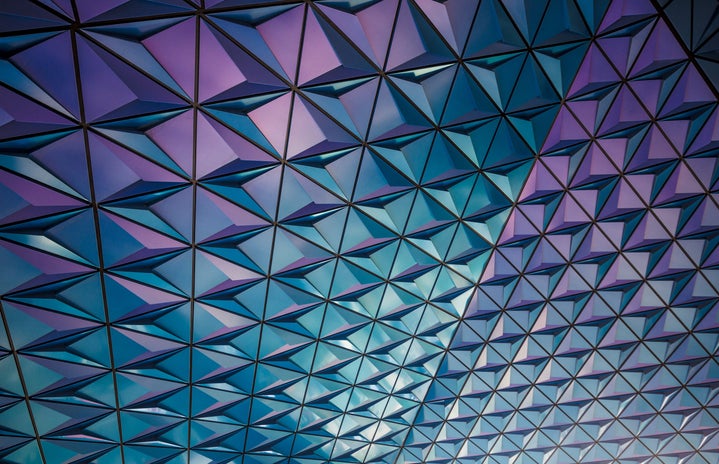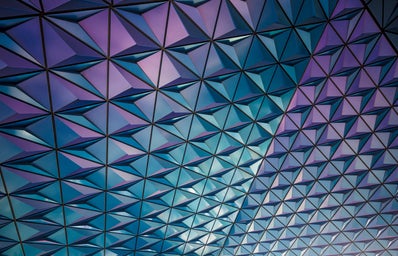Some humans exist with a vibrancy and honesty we didn’t know we needed. Nicole Bajerek, SLU first year student and writer for Her Campus, is one of those humans. A vocal and proud advocate for mental health and eating disorder awareness, Nicole’s presence in person and through social media is one of fierce friendship, limitless affirmation, and invaluable support and validation.
For this multi-article series on societal violence against women manifested in eating disorders, I am lucky to have a SLU voice to bring home the urgency and impact of how society and the media views and portrays women.
With that out of the way, here we go.
1. Does social media/the media/brands impact your body image and mental health?
Social media can be my worst enemy and my best friend when it comes to body image and mental health. There have been multiple times where I have told my therapist that I saw a workout on Instagram, and explained that if that person could do it, and that person is my age, then why can I not get fit and look exactly like that. I constantly have to remind myself/be reminded that some people on social media get paid thousands of dollars to workout, wear certain clothes and go places and take pictures doing things at those places. The people who are “Instagram famous,” who have a large following of people and who are in the spotlight are people whose sole job is to present themselves in the best light possible to ultimately reach an end goal of selling some product that a company has asked them to sell. I think it is amazing that social media is so accessible to everybody, but at the same time the accessibility that it offers has very huge pitfalls. A picture or a video on a screen is just that. We don’t see what goes on behind the scenes. We see the final edit, the perfected version, the best version. This puts a huge weight on our shoulders. If we are constantly bombarded with images of the most perfect moments in our lives, I think we start to expect that our lives are going to be full of these perfect moments. What we don’t realize is that the picture on social media is only a fraction of what actually goes on in a person’s life.
On the other hand, as someone who is recovering from an eating disorder, social media has been a huge outlet for me. I have a platform where I am able to talk openly and honestly about what I am struggling with in hopes that someone else might read it and feel less alone. I know that when I read the posts of brave people who write about both the milestones and the slip-ups in the life and recovery, it makes me feel connected, and like I am not the only one struggling as much as I am. Now more than ever before, people are starting to come out of the shadows and share their struggles with body image and mental illness. Just like everything else that happens in life, social media has a nice mixture of absolutely miserable and surprisingly useful aspects to it.
2. Do you think society’s keyhole portrayal of women through the media impacts all women? If so, how?
There is a very popular social media post, that includes a picture of a triangle with the words Good Grades-Social Life-Physical and Mental Health written at each point. The purpose of this triangle is to illustrate the seemingly impossible task of doing well academically, while maintain friendships and having fun, while also ensure that you are physically and mentally at your best. Essentially, this triangle is saying that no matter what you do, there is no way to win.
I think the triangle idea can be applied to the way our media portrays women. A women, must be young, slender, athletic, intelligent, having all the “womanly traits” that have been societally assigned such as being a good mother, soft spoken etc….. I was at the grocery store yesterday looking at a magazine and one of the headlines on the magazine said “J-LO on aging-“I love it” We would love it to if we looked like her.” There are so many things that are heartbreaking about this statement, but one of the most important is that this is the way society is portraying women. You must be young and if you are not young then you must look like a movie star to be acceptable. In many ways, it feels like we cannot win no matter what we do.
3. What does body positivity mean to you?
When I think of body positivity I think mostly of body acceptance. Accepting that our bodies are not stagnant, that they grow and change and shift similar to the way we as humans grow and change and shift. Body positivity has allowed me to come out and show off my stomach that is not perfectly flat, my legs that have cellulite on them, and every other part of me that is not what has historically been deemed acceptable by society. This movement has allowed me to feel more confident in my body. When I was growing up I was constantly told by my family, friends, and the media that the only way to be healthy and likeable was to be skinny. I was not the skinniest child, and as a result live in shame of my body for years. When I see other people coming out and sharing what their bodies mean to them, the amazing things that they are capable of doing, the intense shame I felt towards my body seems to disappear.
4. What is the body positivity community?
The body positivity community is a group of people on who mostly spread their message through social media. That bodies come in all shapes and sizes, that health comes in all shapes and sizes, and that “fat shaming” and classifying only one body type as socially acceptable is not okay.
5. Would you consider yourself a part of the body positivity community?
I am very supportive of the body positivity community but I would not say that I am a member of it. The reason I say this is that although I do post body positive pictures and try to be as confident with myself as possible, I am still struggling with an eating disorder that is constantly shaming me for doing so. I try to fight it but sometimes the eating disorder simply wins over me, and I try to do everything in my power to stay a certain size or look a certain way. In my eyes to truly be in the community you have to be able to accept all your flaws and be comfortable with yourself. One day I hope to get there, but for now I am taking baby steps to ultimately reach a place where I can proudly say I am perfectly happy and comfortable in my own skin.
6. If you do consider yourself a part of the community, how does that work, or how is it shown?
There is a lot of controversy in the body positivity community due to the fact that it often excludes those who are bigger than the biggest plus size most stores offer. So even such a wonderful movement like the one for body positivity can be detrimental, because it is essentially saying that there is an acceptable level of “fat” and anything after that just doesn’t fit in anywhere.
Check out this article for more.


